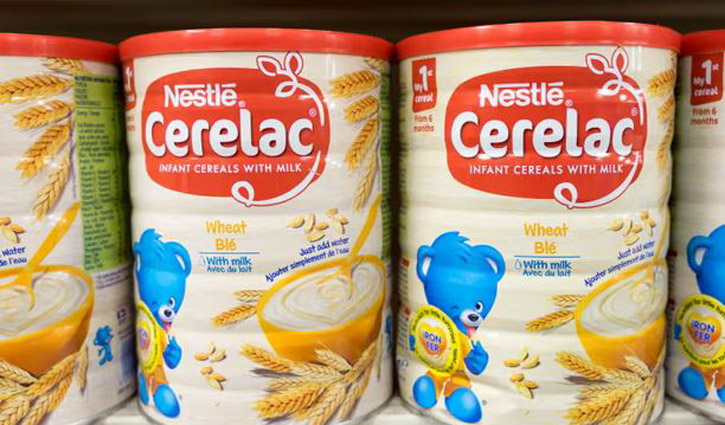Nestlé flouts guidelines, adds sugar to Nido, Cerelac
News Desk || risingbd.com

Nestlé has been adding sugar and honey to its infant milk and cereal products sold in poorer countries, as opposed to international health guidelines aimed at preventing obesity and chronic diseases.
The Guardian, citing findings by a Swiss investigative organization called Public Eye, reported that baby food products sold in African and Latin American markets had a different formula than those sold in European markets.
It was found that Nido infant milk for ages one and above and Cerelac cereal for children aged six months to two years had added sugar and honey, which goes against international recommendations that state children below the age of two to four should not have sugar intakes in their nutritional diets.
This also comes amid research that proved that obesity has become an increasingly common health problem in middle to low-income countries, with the World Health Organization finding that the number of overweight children under five has increased by nearly 23% since 2000 in Africa.
In this context, it is worth noting that 40% of sales of Cerelac are in the Brazilian and Indian markets, forming the largest figures of sales within low-to-middle-income countries. In Brazil, six of eight Nestle products contained 4 grams of added sugar per serving, while Nigeria’s contained 6.8 grams.
The report showed that biscuit-flavored cereal for babies aged six months had 6 grams of added sugar in products allocated for Senegal and South Africa, but zero grams in Europe.
Regarding Nido, the product contained roughly 2g of added sugar per 100g of product, primarily in the form of honey, or 0.8g per serving in Indonesia.
In Mexico, two out of the three Nido products intended for toddlers had no extra sugar, but the third product contained 1.7g per serving. The report also noted that Nido Kinder 1+ products sold in South Africa, Nigeria, and Senegal each contained nearly 1g per serving.
What is additionally concerning is the fact that the packaging does not directly indicate the nutrients and substances within the product’s formula, alongside the fact that labels themselves cannot be universally read and understood the same way.
Labels also usually include added sugars under the same heading as natural or organic sugars found in fruits.
Dhaka/AI



















